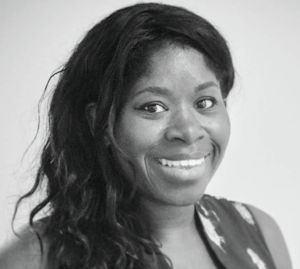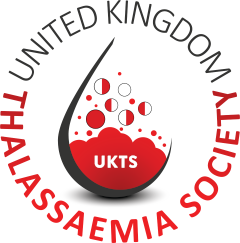Psychosocial and mental health

Information
Thoughts, feelings and thalassaemia. It is natural to for us all to feel low at times, especially when you are living with a chronic condition like thalassaemia.
There is a strong relationship between what you think, how you feel and what you do. As the philosopher, Rene Descartes said “We do not describe the world we see, we see the world we can describe.”
A life-long condition like thalassaemia can have a significant impact on your view of yourself, the world around you and your future. In turn, this can then affect the emotions you might feel (for example, sadness, guilt, regret, anger, frustration or worry) and how you cope and respond to these thoughts and feelings. The complications of managing medical treatments and changes in health while also trying to deal with the ups and downs of life are commonly reported by many patients and their families.

Dr Chinea Eziefula
Dr Chinea Eziefula is a Clinical Psychologist and the Haematology Psychology Service Lead at Whittington Hospital. She will be writing a regular piece for our quarterly newsletter, so if you have any particular psychology-related topics that you would like her to write about, please contact us with your suggestions Support at UKTS.
Living with thalassaemia can affect self-esteem, confidence and general mood. It is very common for people with thalassaemia to feel worried, stressed and/ or low in mood at one time or another, depending on what is happening around them in their lives or related to their condition. These are normal emotional responses to dealing with the challenges of living with a chronic illness. Some people with thalassaemia report being able to cope with these feelings in their own ways and others find it helpful to talk to their specialist haematology team about how to get help and support with these feelings from healthcare professionals. Everyone is different and it is ok to ask for help – that is what your haematology team is there for. Your mind is part of your body too and asking for help with how you might be feeling because of the challenges of living with thalassaemia is ok.
How to get help
Haematology psychologist: Ask your specialist nurse or consultant about what type of help is available to you to help you with the thoughts and feelings that come with thalassaemia. It may be that there is a psychologist within your haematology team to whom you can be referred for a consultation. With the psychologist, you can discuss therapy options to help you understand and deal with any challenging thoughts, feelings or situations linked to living with thalassaemia.
Other support services: Whilst not all haematology departments in the UK will have a psychologist as part of the team, your consultant or specialist nurse should still be able to advise you on how to access psychologist support. Alternatively, they may direct you to community-based support groups and services. Your nurse may even suggest peer-to-peer support where they put you in touch with another patient who is experiencing similar feelings. There is always the option to speak to your GP about what support is available to you.
IAPT services: You can also consider looking for support via a local improving access to psychologist therapy (IAPT) service using the following link:
Find Psychological therapies (IAPT) services
Most IAPT services accept self-referrals meaning that you can refer yourself online or by phone. Alternatively, you can be referred by any healthcare professional including your GP or your haematology team.
UKTS: If you are struggling to get help with any of these issues, you can call the UKTS office and they will try and direct you to the support you need. In the future, UKTS is planning to run group support sessions at their office in Southgate. If you are interested in attending these, please express your interest by emailing info@ukts.org.
